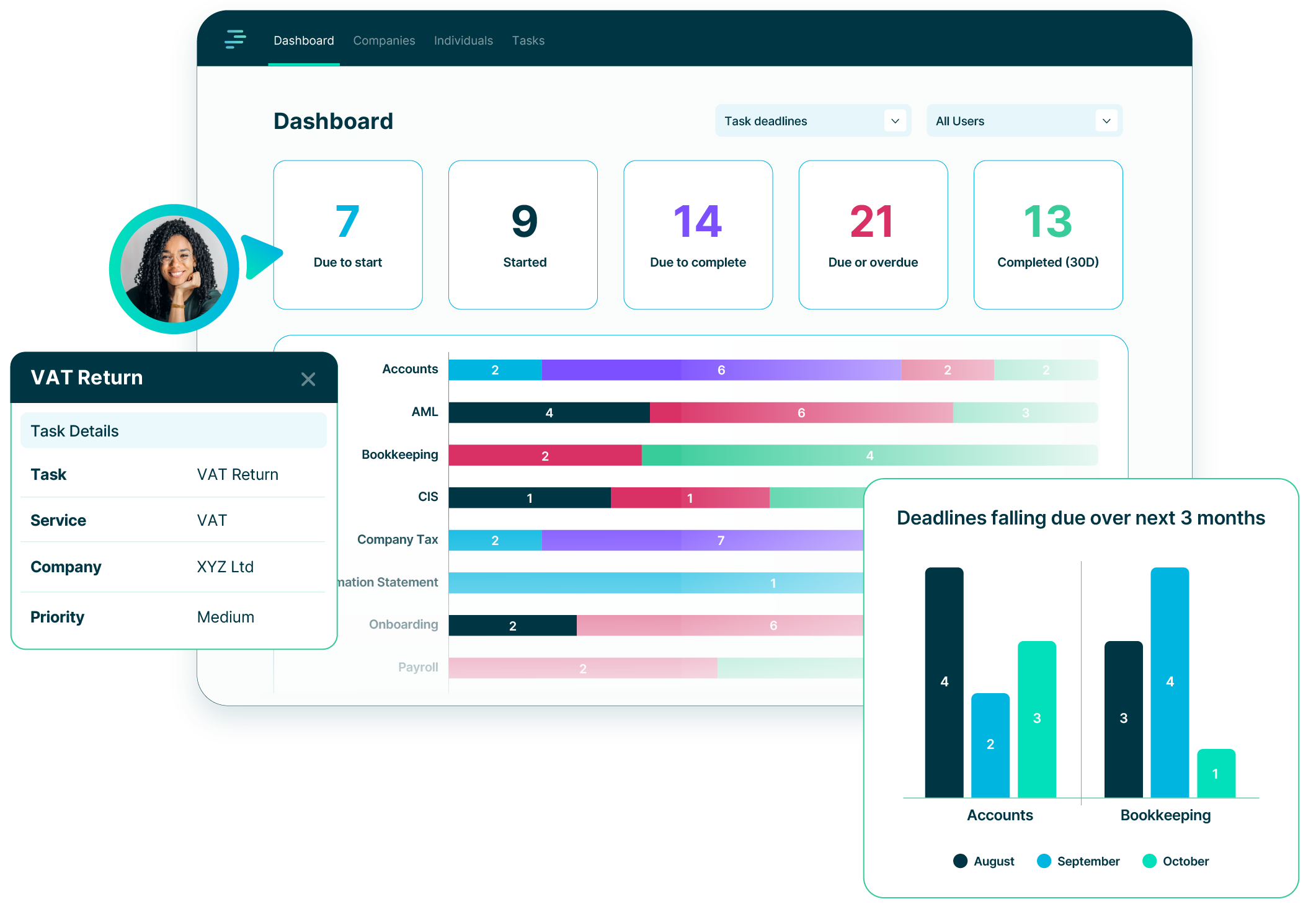
There’s no shortage of practice management tools for accountants and bookkeepers. Many promise to do it all, from client onboarding and task management to filing returns and chasing payments.
But when a platform tries to do everything, it often ends up doing too much. What sounds powerful on paper quickly becomes overwhelming in practice.
If you run a small firm, you probably don’t need an all-in-one system. What you need is clarity and control: software that helps you stay on top of your work, without adding to it.
Some practice management platforms promote features like email triage, automatically extracting tasks from incoming messages.
There’s no doubt email can feel relentless, and for many firms it’s one of the biggest sources of distraction, but turning every message into a potential task isn’t always the answer.
For smaller teams whose primary goal is to stay on top of defined work, email triage is likely to be overkill. Do you want your software to be constantly scanning emails and dictating your workflow? Or do you want to progress logically through planned tasks?
Email systems are the natural home for triage and volume management. Practice management software should focus on workflow and deadlines, not replicating an inbox
Sometimes, complex tools don’t solve complex problems; they create new ones.
Many firms turn to practice management software because they’re drowning in deadlines, emails and spreadsheets.
But instead of getting clarity, they end up with a different problem: having to learn a bloated system that tries to do too much.
When you look past the initial pricing, you might discover:
I attended a session where firms shared their experiences of implementing a specific practice management software. What struck me wasn’t the feature list, which was impressive, but the cautionary tales: failed rollouts, pressure to build the right project team, paid implementation described as essential, the need for an operations manager, “the system is a beast”, and even large firms still needing vendor help to make full use of the features.
The language could have been lifted straight from the ERP world, where more than half of projects fail. Powerful once in place, perhaps, but costly, complex and hard to sustain. For smaller firms, that level of complexity isn’t an advantage, it’s a risk.
Some well-known providers charge substantial implementation fees. Even for very small firms, just to get started, figures of several thousand pounds are not unusual.
PracticeFlow is super easy to implement and to understand. As a result, there are no implementation fees. Any help that you need is FOC.
For the majority of small firms, the essentials are simple:
That’s it. Everything else is optional — or better handled by tools built for the job (like Xero, GoProposal, or HubSpot).
Most small practices:
What they need is something that works straight out of the box:
That’s why we built PracticeFlow to do just one thing: help you stay on top of client work.
At PracticeFlow, simple doesn’t mean limited. Our smart tasks can handle all the services you are likely to provide and you can create new ones in minutes. Complex workflows, checklists and deadline logic are taken care of quietly in the background.
You get structure without having to build it from scratch.
Simple systems are
That matters when your practice is growing, onboarding a new client, or training a new member of staff.
If you’ve ever tried a new system and thought:
“This is clever, but it’s too much for us.”
or
“Lots of functionality, but I’ll never get it all working without a lot of help.”
You are not alone. We hear that all the time.
PracticeFlow is for firms that want structure, not clutter. Automation, not admin. Control, not complexity.
The right practice management software doesn’t need to do everything; it just needs to do the right things, simply and reliably. For small firms, that means clear task tracking, automated deadlines, and a system that fits the way you already work, not one that forces you to change it.
At PracticeFlow, we believe powerful tools shouldn’t come with complexity, setup headaches or steep learning curves. That’s why we’ve built a platform that’s easy to implement, easy to use and designed specifically for UK accountants and bookkeepers.
Join the growing number of UK accounting and bookkeeping practices using PracticeFlow to stay organised, meet deadlines, and focus on what matters most.
